Emotional Intensity in Gifted Adults
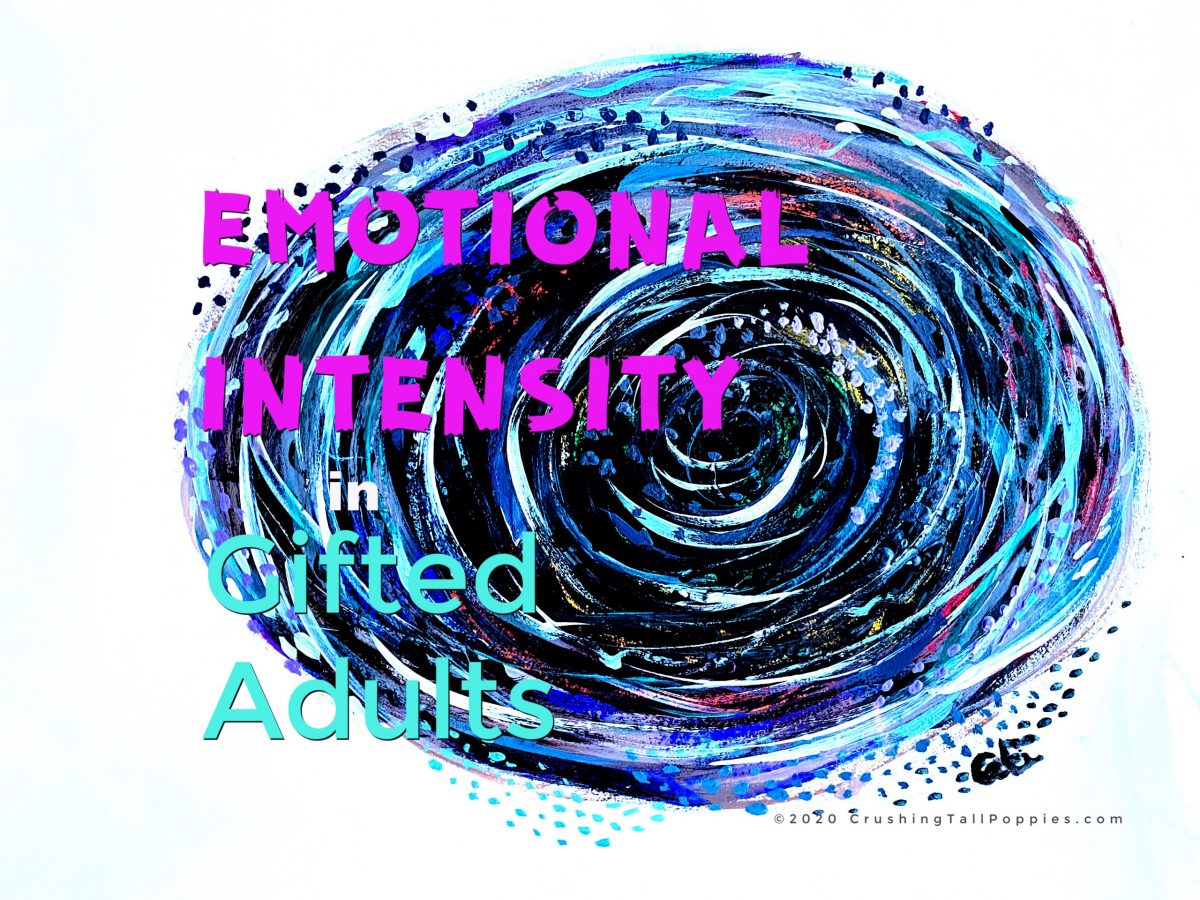
Emotional Intensity: The Dark and the Light
Emotional intensity is an attribute many of us spend a lifetime coping with, successfully and not so successfully. One day, or one hour, you have overwhelming feelings of intense anguish or burdening sorrow that bring you to your knees and leave you questioning how you can possibly live through the depth of your pain. The next day or the very next hour, your emotions, an ever-swinging pendulum, sweep back to the polar opposite of the despair you were enduring before. You are now encircled by swirling winds of happiness, hope, love, strength, trust, and gratefulness. At that moment, while enveloped in your joy, did you ever wonder why you even worried about the possibility of being sucked forever into that spiraling black hole of hopelessness?
Understanding My Emotional Intensity
My knowledge about emotional intensity is from my own experience. I don’t pretend to have any professional expertise in this area. I do have years of anecdotal evidence—my own, my family’s, and from a significant number of friends in the gifted community. Universally, we look to research findings and scientifically proven facts to assess many psychological phenomena, such as our emotions. And that is an essential path to knowledge and treatment protocols for mental health professionals. But those of us surviving and thriving with our emotional intensities have a long-standing personal understanding of our overwhelming, mercurial feelings.
When my emotional pendulum rapidly jolts towards the dark side, I am abruptly caught off guard, cruelly cut off from my arsenal of tools I use to right my emotional ship. The triggers vary from the usual, recognized culprits to unforeseen circumstances that bowl me over, a sneak attack on my emotional equilibrium. Unable to use self-talk and calming techniques that I’ve learned through therapy, I’m left to stew in a cauldron of agony, my dark feelings of ink blue, gray, black, and brown, an unwelcome witches brew. Yet, deep in that bitter mix are flecks of my vibrant, hopeful colors of bright red, yellow, purple, sky blue, orange, and green.
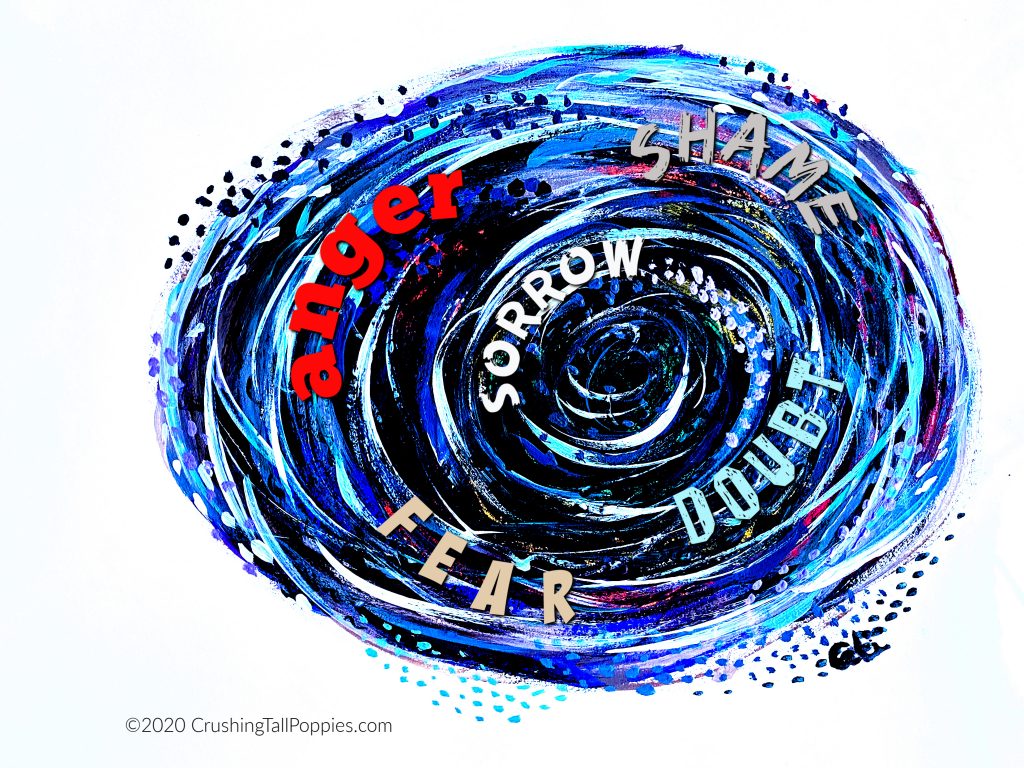
When I’m left to sit in my emotional pain, I remember my colorful swirls of happiness, hope, love, trust, strength, promise, and gratitude. I envision those feelings rising to the top of the dark storm, and it gives me peace—the calm I need to dwell in the darkness when it comes.
Misdiagnosis of the Gifted
To persevere during the times my emotional intensities were entrenched in dark feelings like doubt, fear, sadness, anger, and shame was quite a learning curve. In therapy, I bristled each time I was told, “Your feelings won’t kill you!” or “Your feelings have a beginning, a middle, and an end.” I wanted to scream back, “You sure as hell, don’t understand the depth of my feelings, do you?” And the misunderstanding of my intense emotions was somewhat accurate. It could likely be true for many gifted individuals who are emotionally intense.
Giftedness is pervasively misunderstood, making our emotional intensity a little-known, while common trait. Giftedness is likely misunderstood because of its historical and nearly-indelible connection to our educational system. That giftedness is believed to be a function of education has been a long-running misperception. One source of the misunderstanding of giftedness in both children and adults, which has a significant impact on the lives of gifted individuals, is among our mental health professionals. I bring this up for those who seek mental health services and who may be at risk for the misdiagnoses often seen among gifted individuals. If you are an emotionally intense gifted individual, self-advocacy and having to teach the teacher about giftedness might be necessary for an accurate mental health evaluation.
Understanding Your Emotional Intensity
And as much as I despised hearing the words, “Your feelings won’t kill you,” there is truth in them. You may balk when I say that it is possible to sit with your fears, pain, anguish, and sadness. Understanding those distressing feelings and recognizing we all have them is the beginning of learning to be still and accept your deep, dark emotions. There were many emotional mountains I had to climb before I finally allowed my tears to flow or claimed my anger. Once I did, I was finally able to just sit with my most painful emotions and lean into them, trust them, and learn from them.
I came to embrace my emotional intensity, and I learned that it was okay to fully feel all my feelings. Understandably, the crushing, painful emotions were the ones I struggled to withstand. Still, I began to willfully turn and face the depths of my hopelessness, fears, anger, and sadness. I peered deep inside me and met them head-on. I discovered those dark feelings were not nearly as powerful as I had allowed them to be.
With acceptance and understanding came realizations. I realized I could use my fear, despair, and anger for good. Adversity builds strength, and time and time again, from within my twisting cyclone of distress, rose a stronger, braver me equipped with new superpowers. I now accept those dark feelings, I welcome them, I let them surround me, and then I give them a purpose—a purpose for good.
Giving Purpose to My Emotional Intensity
As an author, my emotional intensity fuels my writing. When I step headlong into the spinning storm of my darkest emotions, I immerse myself in them. Once engulfed, I use my feelings to create written narratives and poetry that reflect and portray my truths and my authentic self. Experiencing both the dark depths and magical crests of my emotions allows me to be completely vulnerable. I publicly share myself by writing about my life as a gifted adult who is emotionally intense and highly sensitive. I do so with the intent and hope that it may validate and support you on your own journey as a gifted adult.
I am able to sit resolutely within that maelstrom when I draw upon my writing to give usefulness to my storm of painful feelings. But, thriving in the dark is not where I prefer to be.
I flourish in my brightly colored tempest, a continuously swirling rainbow of vibrant colors. Each color represents my feelings of happiness, hope, love, strength, trust, and gratefulness. When I play among those cheerful hues, I feel invincible, generous, and irrepressible. My high-spirited nature takes hold, my creativity comes to life, my confidence flows, and my heart leads the way. And yet there remains a tiny, inner voice, a black dot inside my circling rainbow, that tries to whisper doubts into my mind. Her name is imposter syndrome, and now, I rarely lend an ear to her lies.
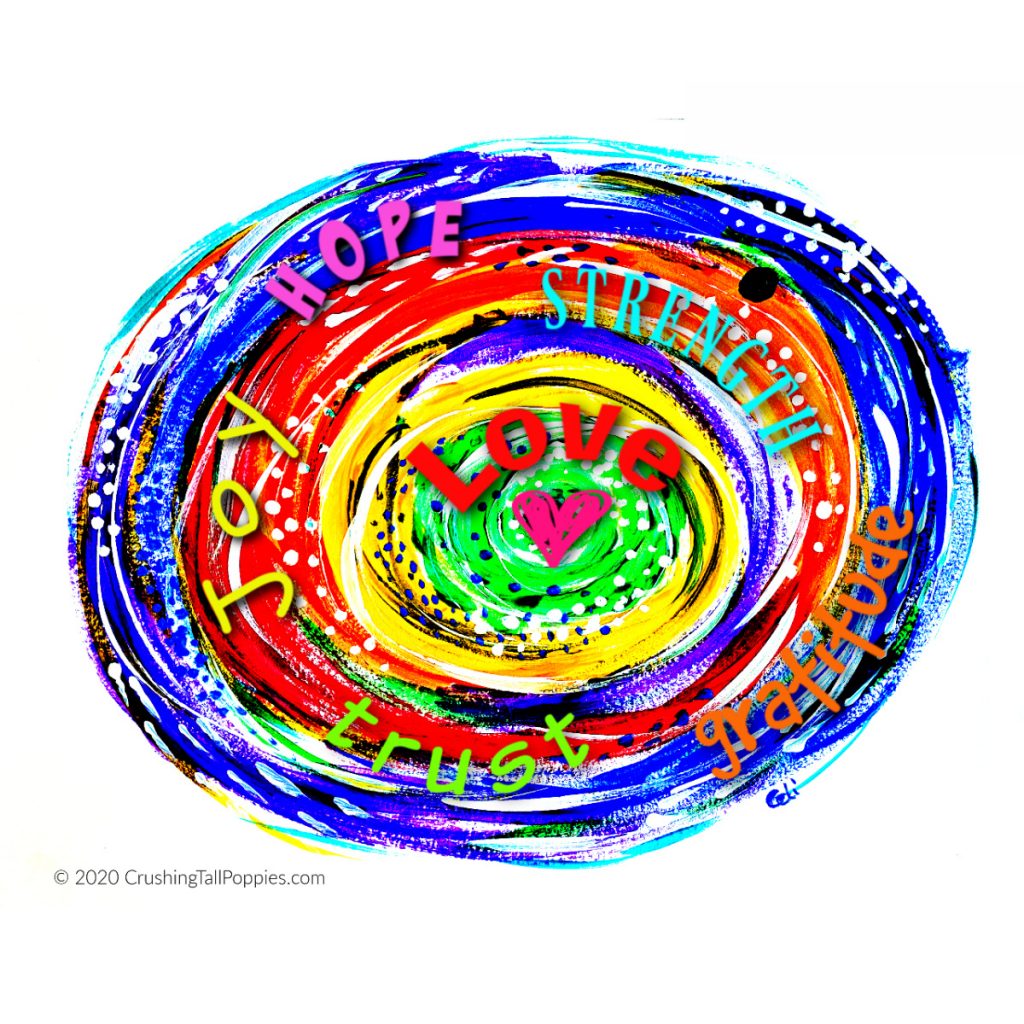
I grow, recharge, and soar when I jump, open-armed, into my joyful, whirling colors. Where once I would worry what others thought of me, I now throw those concerns into the cheery winds that circle ‘round me. You might just find me recording myself singing and dancing alone in a parking lot, fulfilling a silly challenge from a cherished friend. On my daily bicycle rides, as I pedal, I gleefully sing, out of tune and off-key, to my favorite songs. I continue my musical performances while waiting at stoplights at busy intersections—not caring who is watching.
I lovingly seize my bright, joyful colors flowing around me. I no longer hide my passions, my energy, my love, nor my talents. I find a purpose for all my feelings—the good and the bad. Learning to love my emotional intensity has led me back to me; the emotional, colorful, extemporaneous, spirited, and authentic me I should be.
Where will your emotional intensity lead you?
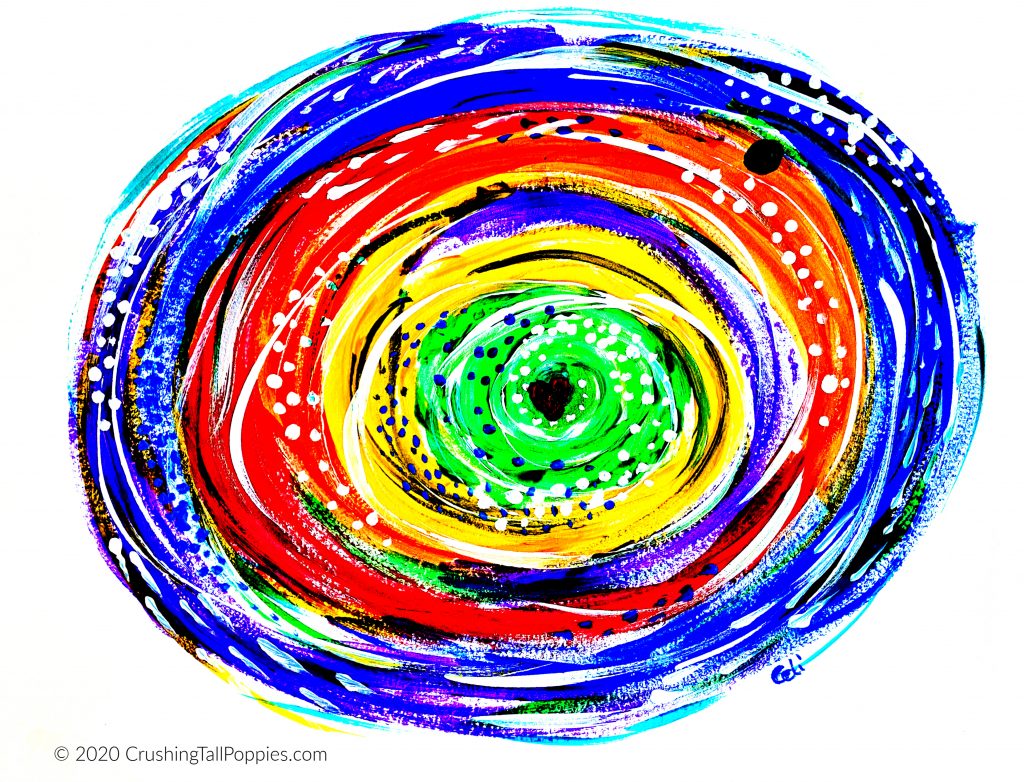
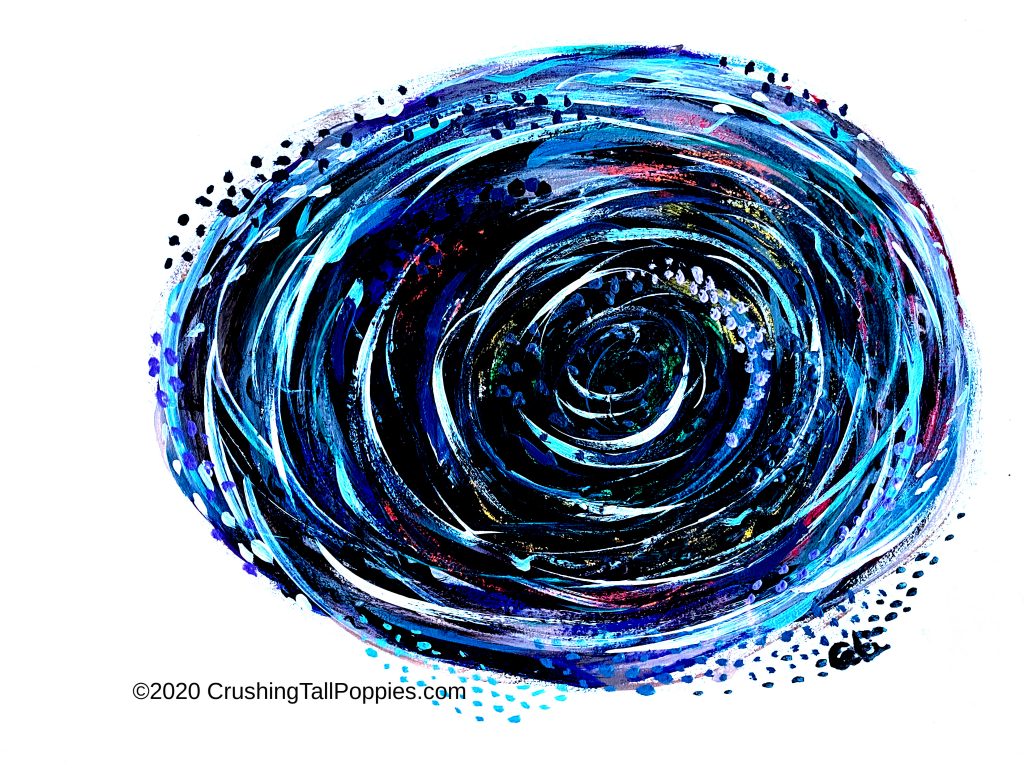
 Crushing Tall Poppies
Crushing Tall Poppies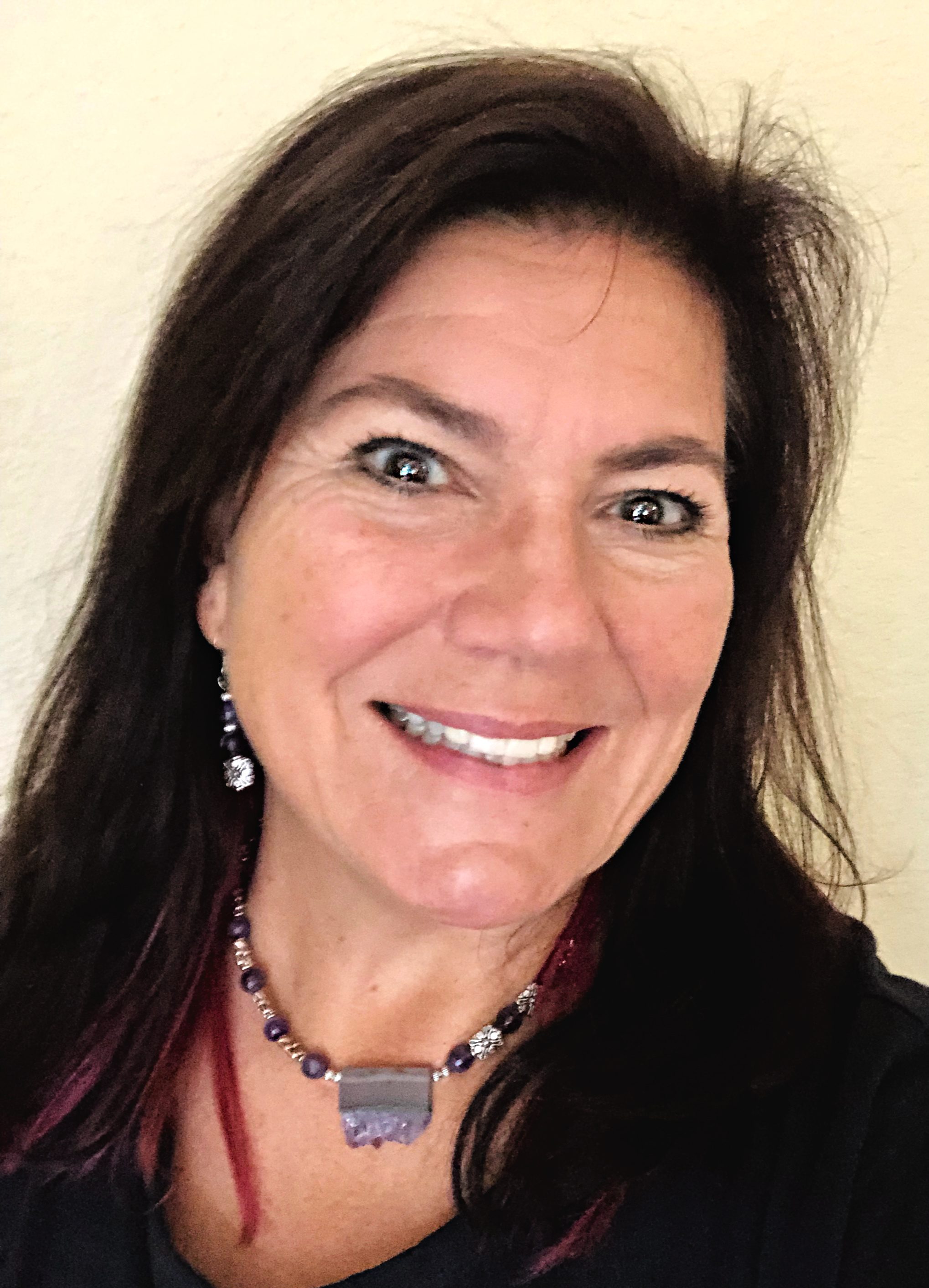
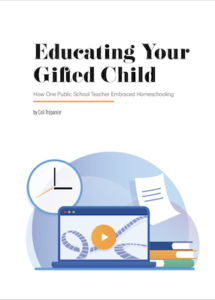


Yes, I completely relate to this. It can feel very lonely and frustrating. I often feel misunderstood. I continuously feel I am in the familiar role of “teach the teacher.” I’m re-reading the book, “‘Mellow Out,’ They Say. If Only I Could.” It’s validating. 💖🙏🦋
And “teaching the teacher” is an awkward situation that often takes great tact!
Thank you for this!
Like many others here, this article has made me feel less alone.
I remember when someone described me (as an adult) as intense, and I was somewhat caught off-guard! It seems like such a bad thing – she didn’t mean it that way, haha, but it made me realise that she could be right.
With this intensity comes ridiculous lows, interspersed with periods of passion, drive and vision. My flatmate can’t understand it, and finds it disconcerting. I’ve tried to explain that I’ve never known it to be any different – in fact, my family have never mentioned this ‘quirk’ as being abnormal. I often feel misunderstood and because of that, lonely in my lows.
Anyway. Thank you for writing 🙂
Hi Aimee,
I’m glad writing about my experience has helped you, even if it’s just a bit! Even though others may have trouble understanding our gifted quirks, you are a welcomed part of a large, understanding community of gifted kids, families, adults, and gifted elders.
Take care <3
Celi
Hello!! I don’t know if you remember me, but I used to leave comments here all the time! I just remembered this website and thought I’d drop in to update you on my life!
I think the last time I commented, I was in sixth or seventh grade. I’m in high school now! My fifteenth birthday is coming up.
I still play the piano. I’ve decided that I want to become a professional pianist when I’m older.
I’ve found people who are like me, and I haven’t felt as isolated as I used to now that I’ve found people like me.
You helped me so much when I was younger, and I think that made me a more confident, self-assured person today. Thank you, from the bottom of my heart!
TOBY!
Yes, I remember you! You just made my year! I am so happy and thankful and thrilled that you are doing so well!
Also, on your journey to becoming a professional pianist, can you share your performances, recordings and events with us here? We’d all love to listen to you play! I’m also asking selfishly because I’m just learning to play the piano and love listening to piano performances 🙂
Take care and keep moving forward <3 ~Celi
I’m sorry for not responding sooner!! That’s so cool that you remember me! I’m not sure how to share an audio recording, but I just had a concert at my high school and I got to play the piano with my choir!
It’s awesome that you’re learning to play the piano! I may be biased, but I think it’s one of the most fascinating instruments (but organs are really impressive, too).
I’m already halfway done with my freshman year of high school, and it’s going by so quickly! I’ve made even more friends since I left that first reply in September, and I’ve been discovering that they are eerily similar to me in some ways, lol!!
I hope you’re doing well, and I’ll try to leave updates here over the years! It’s kind of strange to see things I said 2 or 3 years ago on here, but it’s interesting too!
I’m so happy you are doing so well and doing what you love! Thank you for keeping in touch, Toby <3
Wow! This was a very intense read and educational. Intense because I have a daughter who was a gifted child and now gifted adult. She has everything you described of a person having emotional intensity. I find myself a little emotional because we could not understand what was going on with her highs and lows.
As a gifted individual she placed pressures on herself that we never did and when this happens self doubt takes her down a rabbit hole. I am a voice of reason for her so we would talk through it. She is currently in graduate school gaining a PhD in Material Science. The challenges that lab has as a first year student adding COVID restrictions has really challenged her emotional state.
Fortunately, she took it upon herself to reach out to get counseling to gain strategies in coping with her anxieties and emotional intensity. Yay! A name for it. I can share this information with her so that she will have more to gain in counselling sessions.
I can also use this knowledge with my elementary Gifted population that teach.
Thank you so much.
Hi Catina!
Thank you for writing and sharing your daughter’s experience as an emotionally intense adult. It’s validation for all of us.
And many, many, many thanks for taking this knowledge and sharing it where it can be useful, maybe even life-changing!
Keep in touch 🙂
Celi
Wow that was soooo relatable I’m stunned. I just came across emotional intensity webpage yesterday and for the first time in my life I felt hope! I’ve had a long hard road of misdiagnosis adhd bi polar… I even freaked out for a period in my life and turned to numb some of my feelings with drugs. I was an addict for 5 years just to calm some of my emotions. I don’t even know where to start now that I know what I have! But I sure feel incredible to finally have hope!! I have literally emailed a founder of a group that helps people with this emotional intensity… I’m sitting here with a cut on my neck from me having a random meltdown and just wanting to die and hating that I didn’t understand how other people don’t feel so much pain from just typical things.. like being cheated on. Then I can listen to a song and all the sudden I’m like on cloud 9 seeing a future of adventure and clarity! Thank you soooo much for sharing and helping me understand myself through your words!
Hi Kelly,
So, so sorry it took me this long to respond. My family was in the middle of a cross-country move.
My story may have been relatable to you, but your story was also relatable to me!
I’m much further down the road than I was when I wrote this and just to let you know, it got easier as I became intimately familiar with my emotions. In a way, it’s the same knowledge one has when they get the flu or stomach virus–it really sucks while they’re in it and can’t imagine what it will be like to be feeling well again, but they know they will get through it. Now, when I feel so much pain, and so deeply, I get that pang of fear that I can’t survive it, then I remind myself to lean in, let myself experience all the huge feelings, and in record time, I’m through. Sometimes, it surprises me, like, “Wait . . .I’m done? That was it?”
Knowledge of your emotions, their waves, triggers, and what they do from beginning to end seems to be what helped me manage them. It’s liberating.
I’m so thankful that my story has helped you! Please let me know how things go and I wish for you a happy, bright and confident future with your beautiful, deep emotions! ~Celi
True, this is a bear for gifted folk. And resilience does not mean shutting any of it off but living with all of it. You’ll feel what you’ll feel (and often deeply, there’s no avoiding that) but how to respond to it is the key.
That was so well-stated! “You’ll feel what you’ll feel, but how to respond to it is key.” That should be printed on a tee shirt for the gifted community!
Also, you are absolutely right: resilience doesn’t to mean shutting any of it off—I learned that the hard way.
Thank you for sharing your wisdom. You have shared so much here on Crushing Tall Poppies, and I am sincerely grateful 🙂